Cinemas in Wad Madani City
The article tackles details of the cinemas in Wad Madani and the implications of political, economic and social changes that occurred as a result. Discussed below are the names and locations of cinemas, as well as the type of cinema goers during different time periods in the City of Wad Madani, Sudan.
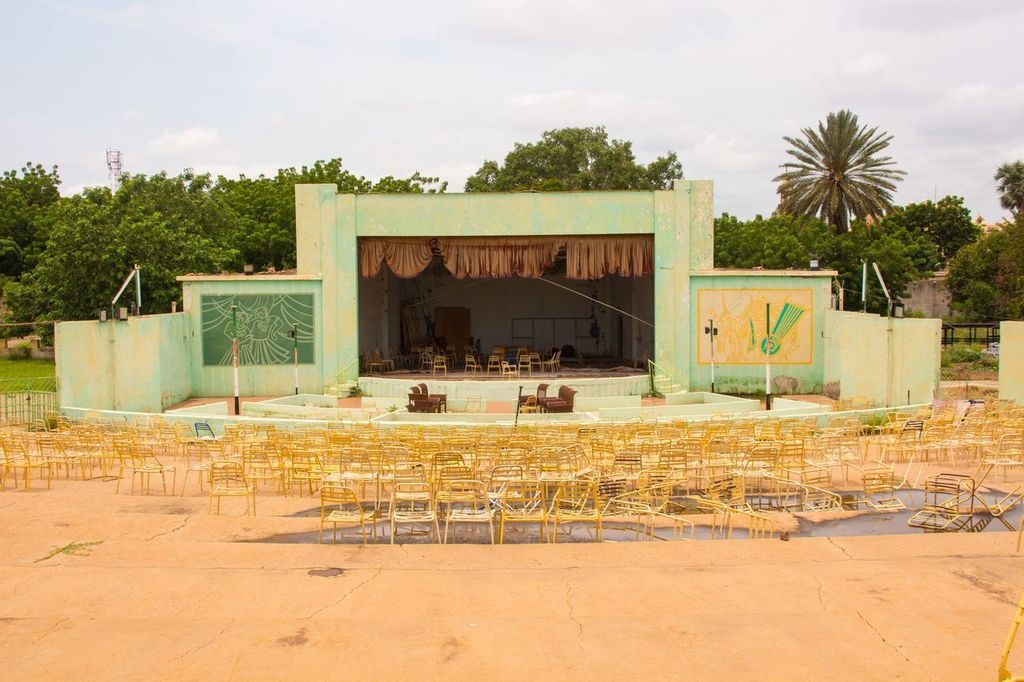
The abandoned 'AlJazeera' theatre in Wad Madani.. Photo credits: Mohammed Omer for Andariya.
In the collective memory of the Wad Madani community, pain gnaws at the pale present as the memory of places is characterized by the breadth that has always been flooded with the immediate moment.
The past century witnessed Cinemas to be the true cultural tributary, which served as the only entertainment option for many of the city’s residents. The culture of cinema remains engraved within the city’s memory, especially among the generation that inhaled a fresh breath of freedom in light of the country’s independence.
Cinema began in Wad Madani in the early 1950s or just shortly before, in what is known as “Mobile Cinema” by the Ministry of Information. The Mobile Cinema encompassed an automobile with an attached screen which roamed through the neighborhoods. Operating it was a specialized technical employee. At that time, the existence of cinemas began to loom over the cityscape.
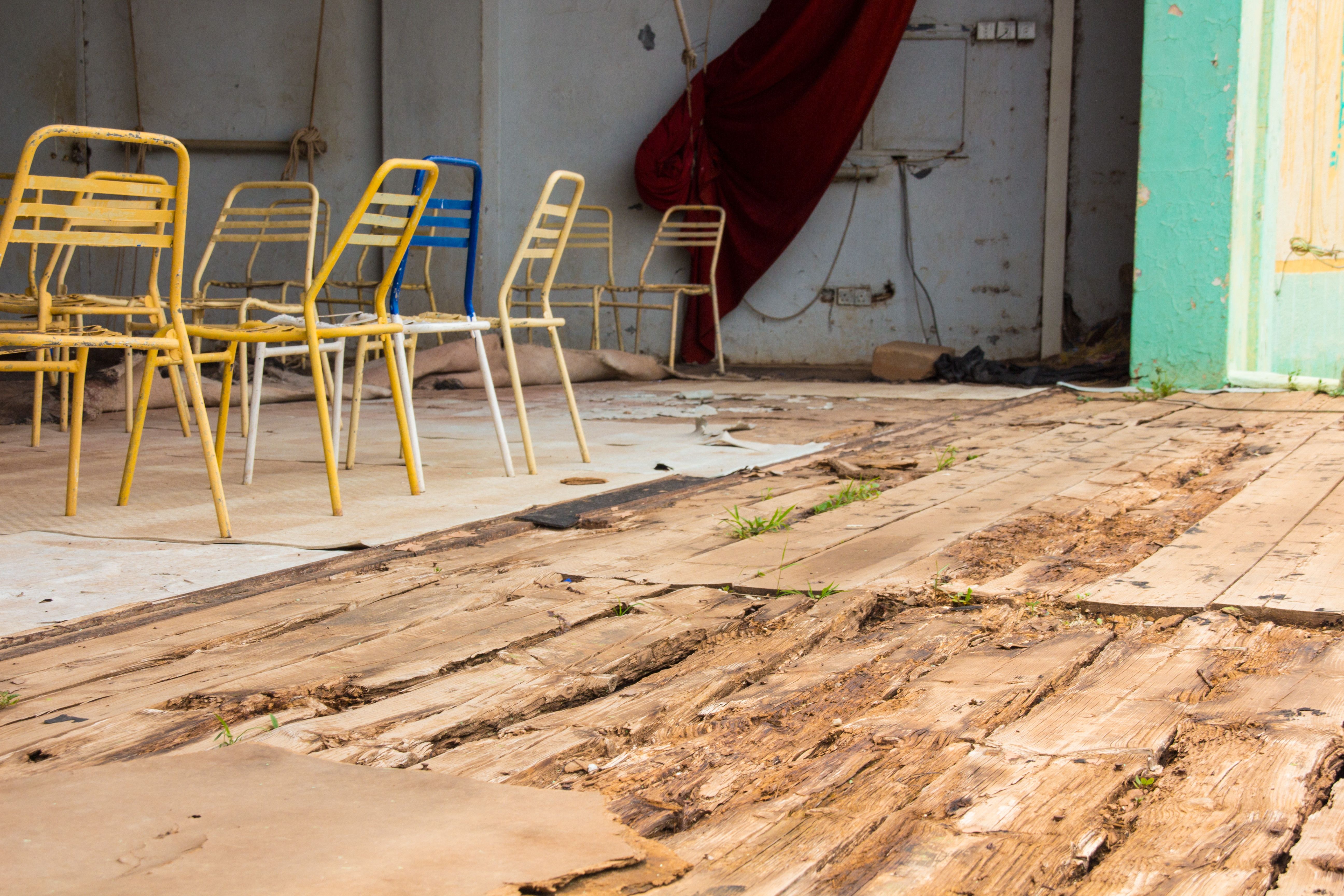
The abandoned 'AlJazeera' theatre in Wad Madani. Photo credits: Mohammed Omer for Andariya.
There was a cinema known to the people of Wad Madani, behind the Judicial Institution and Nile street. Recently referred to as The Banking Club, south of the current Legislative Council. Two cinemas were established shortly after; Al-‘Khawaja’ Cinema, located near AlMahatta street, and ‘AlWataniya’ Cinema, located in the market west of the Ministry of Education in Wad Madani. The cinemas targeted the educated class in Wad Madani; for in that era, films and books were an effective tool in culturing people.
In search of cinemas, especially with regards to information related to the owners, you may find many discrepancies. When memory doesn’t fail the contemporaries who lived during that era, they narrate in hopes of keeping the memories alive. Cinema Colosseum or Cinema Al-Khawaja (a name given to a foreigner) appears to have been established by a Khawaja, serving as an extension to the Colosseum cinema in Khartoum. On the other side, with patriotic pride, AlWataniya cinema, meaning patriotism, was founded after the country's independence by nationalists, while others recall it may have been a national private company. Unfortunately, no solid information was given about the owners of the cinemas.
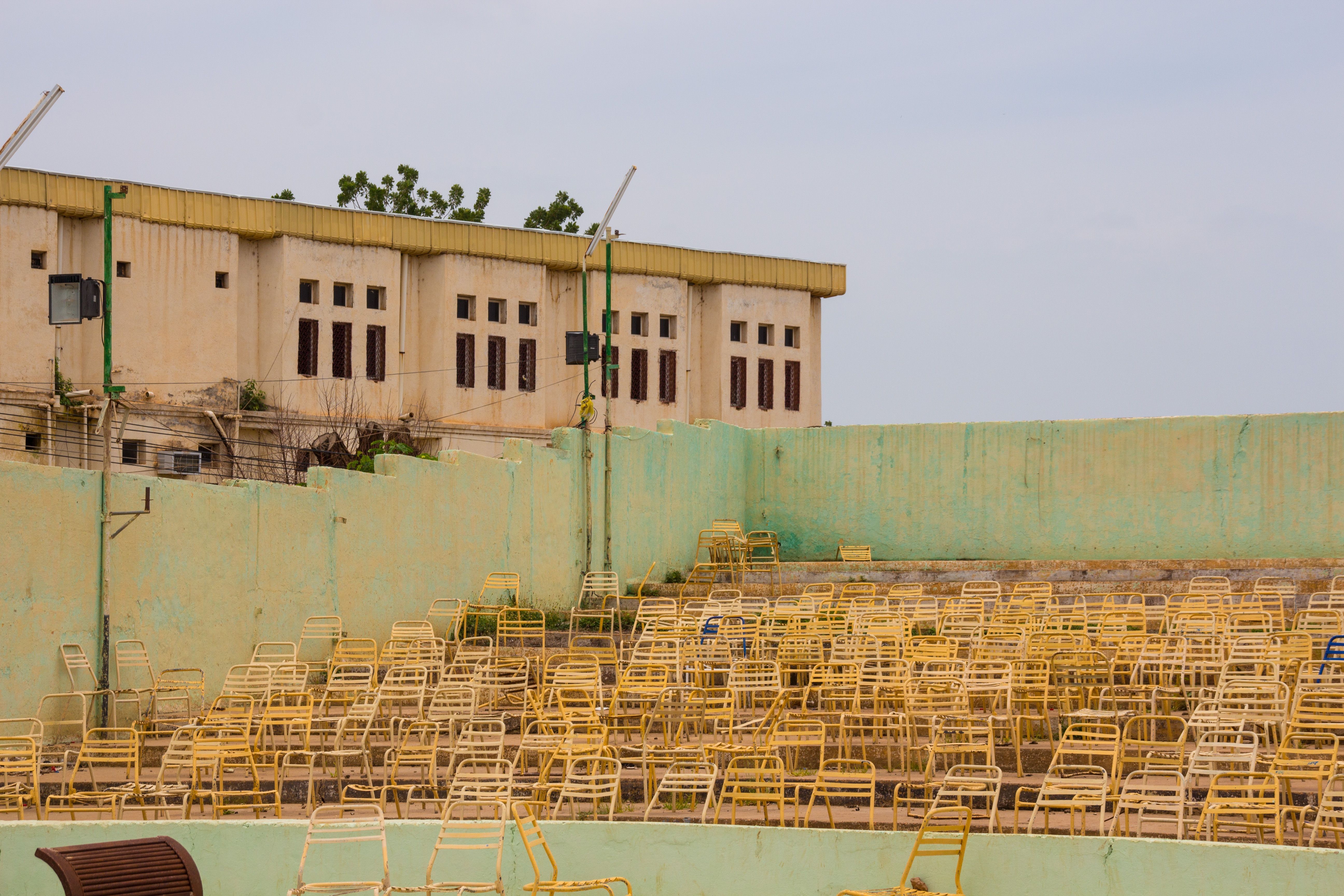
The abandoned 'AlJazeera' theatre in Wad Madani. Photo credits: Mohammed Omer for Andariya.
Cinema culture spread until the mid-1970’s. In 1975, Rudi cinema appeared in AlDabagha neighborhood and Amir cinema, located in AlHilla Algadeeda neighborhood. The 70’s witnessed cinema culture in all its glory. A total of six cinemas attracted moviegoers and provided films to the people of Wad Madani, in addition to the ‘Mobile Cinema’ and AlZamalek cinema, located in AlZamalek neighborhood.
Cinema Goers
AlKhawaja cinema, considered a targeted cinema, frequented by the educated class (urban intelligentsia), the middle class, the destroyed middle class, and knowledge seekers. One of the moviegoers at the time recalls that it was cinema that led him to books, with their complex ideas that were sometimes too intricate for their young minds.
AlWataniya Cinema, took a general interest in screening Arab, Indian and foreign films, with a focus on the proletarian demographic of the population. The cinemas did not constrict their screenings to just films; they screened international news broadcasts, like the BBC’s in between films. Cinemas aimed to be an excellent cultural resource, integrating broadcasts of international political, economical and sports news and promotional videos of upcoming films. All of this sparked heated discussions about the films being screened that carried on long after the film ended, in social occasions that brought communities together. The cinema in Wad Madani was impacting social relations, infusing gatherings with interesting and sophisticated conversations in schools, clubs and cinemas.
Women and girls also visited cinemas at the time, with an obligation to be in the presence of their families. Structures of the cinema auditoriums were as follows; the basement was for the general public, the second floor, also known as ‘the log’ is where the second class ticket buyers would sit, and finally, the balconies were for the families (including women).
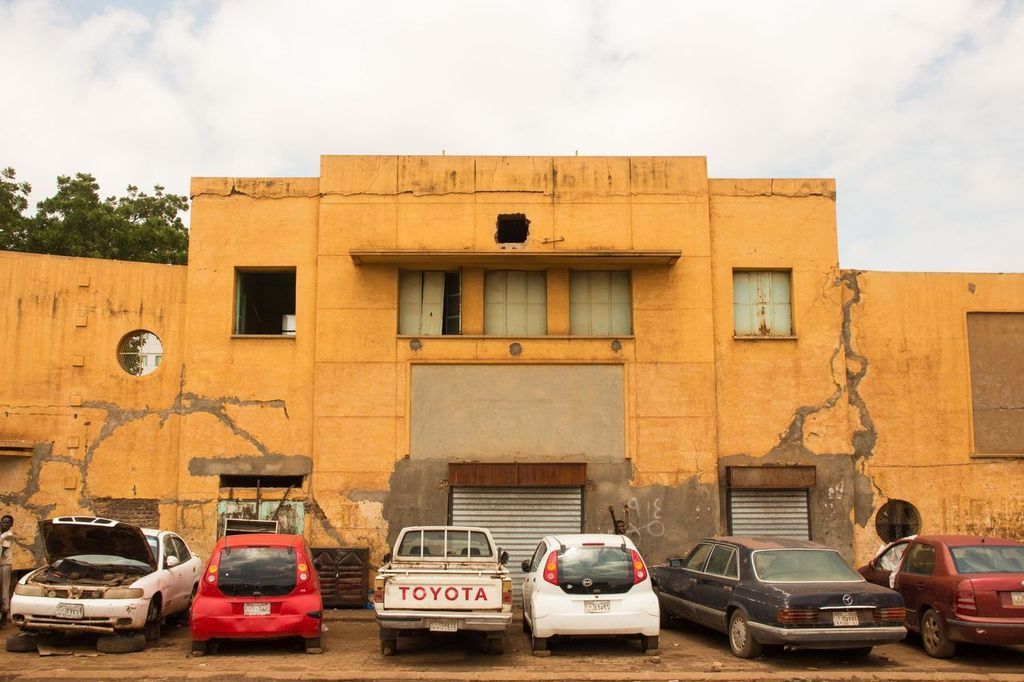
Cinema AlKhawaja in Wad Madani City. Photo credits: Mohammed Omer for Andariya.
The government did not necessarily interfere with the content screened in the cinemas, however there was ‘censorship scissors’ in which a committee was tasked with eliminating what was thought of as inappropriate scenes that may jeopardize Sudanese culture, provoking its belief systems. It was done in an artistic way, appropriate to the films, not desecrating them to the extent whereby they lose their plot and context. The government did not impose severe censorship over imported films or movies, nor did they tighten the screws or pursue those in charge of cinemas. There was some level of freedom in the diversity of the films that were shown, even keeping pace with bringing the latest cinema productions, and screening films competing in international festivals such as the Cannes Film Festival.
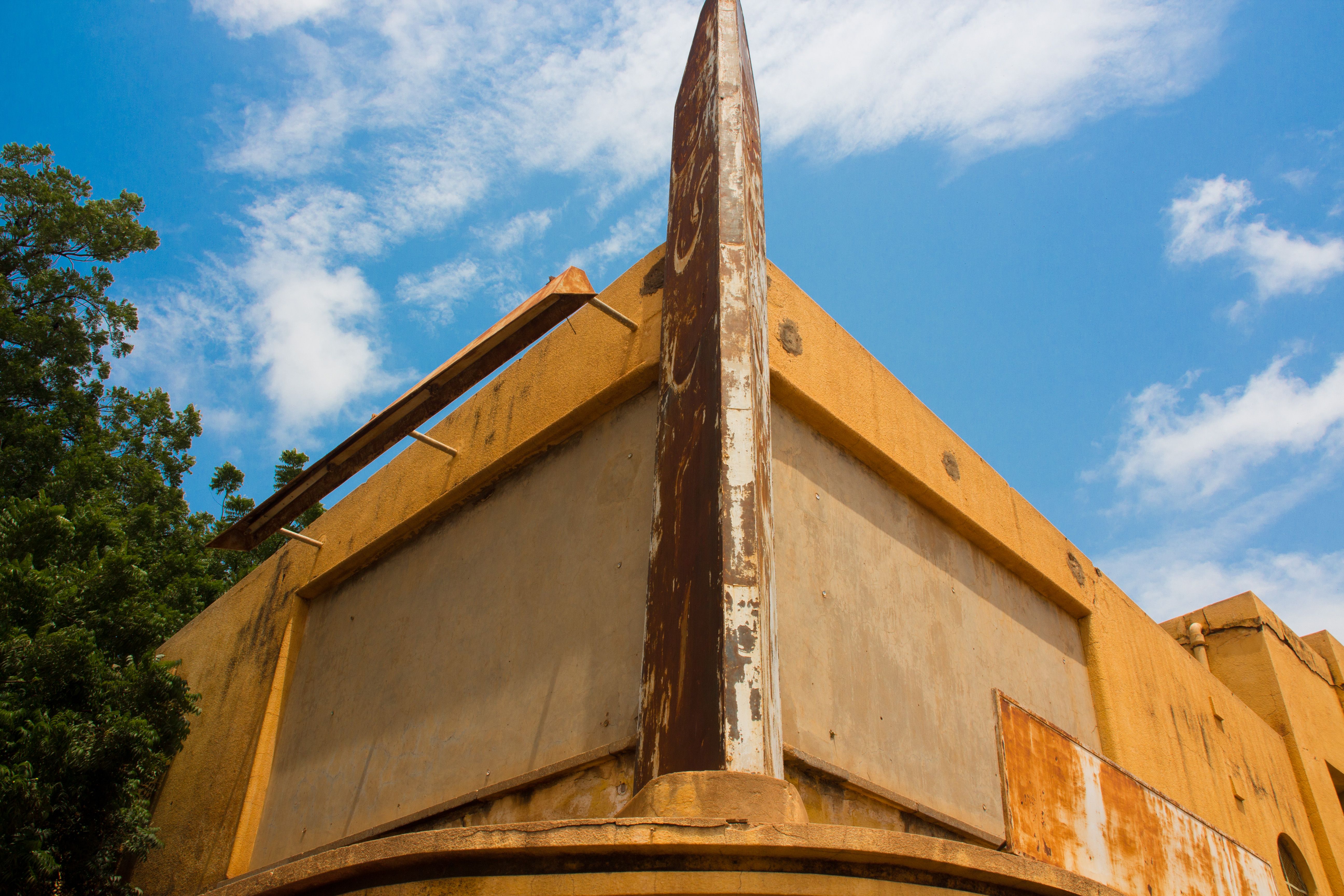
Cinema AlKhawaja in Wad Madani City. Photo credits: Mohammed Omer for Andariya.
The second part of this article highlights the types of films screened, how cinema culture in Wad Madani came to an end, and paints a picture of the cinema industry during the rule of the National Congress party.
This article is part of a series exploring the effects of the Inqaz regime on the arts and culture scene during the 30-year. We will tell stories on what we uncovered in our research in Wad Madani, Sennar, Al Fashir, Al Damazin and Khartoum. By the end of 2021, Andariya will publish a bi-lingual book analyzing the effects of several critical factors on the arts and culture scene, and how we can strengthen the foundation of the sector post-revolution. The project is funded by AFAC in partnership with Andariya.
This article is published as a part of a series covering how the Inqaz Regime shaped the Arts and Culture scene in Sudan over 30 years. The project is supported by the Arab Fund for Arts and Culture, Arab Council for Social Sciences and The Andrew W. Mellon Foundation.
